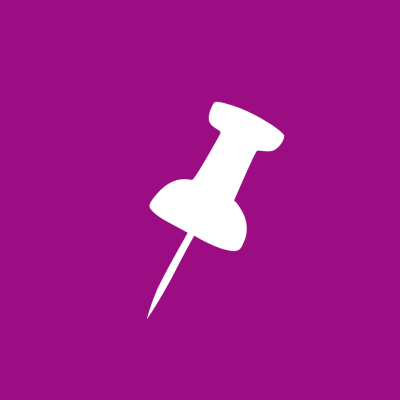All Things Admin Joins ASAP. Learn More ›
Professional Development: What to Focus on in 2022
January 3, 2022

To paraphrase John Lennon, “Another COVID year over, a new one just begun”. How are you feeling about 2022? You may have seen memes half-jokingly reflecting a cautious approach (“Before I agree to 2022, I want to read the terms and conditions”) to our new year. That’s understandable, given the way the ‘20s began … and even more so when we consider how omicron brought a jarring, jolting close to 2021.
More than a few people reading this may have found themselves in the position of putting a screeching halt to carefully developed plans, after a two-year absence, for a return to in person office or personal holiday celebrations. You or your colleagues may be among those whose business trips or family holiday plans were disrupted by airlines’ need to cancel flights. We have reports that, in the US alone, more than 10,000 flights were canceled in the last eight days of 2021.
Given the state of our world, you may also have postponed or canceled business and personal plans for early 2022. It's understandable, then, if you find yourself treading lightly as we embark upon this year. It could be highly tempting, after all the upheaval, change, and accommodating you’ve managed over the last 22 months or so, to lay low rather than embarking on any new career undertakings.
The thing is, though, we can’t put the world on pause, no matter how much we could use a well-deserved breather. You could be reworking travel and meeting plans yet again this month, often making the task appear effortless. You may well be coordinating and attending remote and/or hybrid meetings for some time to come. In this career, there will continue to be matters beyond our control. That’s why it’s all the more meaningful to be intentional in taking control over what we can when it comes to our careers – and that extends to our professional development.
If nothing else, these times have demonstrated the value of having people who bring strong “soft skills” to their role. Quantifiable skills and expertise with various software programs were relevant in helping you attain your role. It’s the soft skills, though, that can make or break your success once you’re through the door.
I believe the so-called soft skills are anything but soft. We know that readily quantifiable skills such as keyboarding accuracy and speed, and software such as Excel, PowerPoint, and so on impact career success. So, too, do less quantifiable soft skills. Our ability and readiness to effectively communicate and contribute as team members impact colleagues and other stakeholders. The extent to which assistants leverage influence and flex emotional intelligence (EI, or EQ) skills also impacts success in the career.
If you think about some of the conflicts you’ve witnessed over the course of your career, it’s often an absence of soft skills that led to such challenges. A Global Talent Trends report from LinkedIn shows that 89% of the 5,000 HR professionals and hiring managers surveyed believe that their organizations’ “bad hires” typically had poor soft skills. It’s unsurprising, then, even with artificial intelligence (AI) and automation on the rise, that 80% of the same group said strong soft skills are becoming increasingly important to company success. These soft skills can be differentiators.
In its latest Global Talent Trends report, Mercer highlighted the concept of winning with empathy. In preparing its report, Mercer identified a few skills and asked executives which of those skills are critical for future resilience. Adaptability/growth mindset (openness to change) came out on top, followed closely by collaboration skills. Self-management/prioritization skills ranked third. We’re back to emotional intelligence, accompanied by communication skills.
When it comes to communications and your career, you may choose to focus on anything from assertiveness to negotiating skills, developing influence and promoting yourself, or establishing or honing your personal brand.
We can and should continue to pay attention to skills that are technical in nature. It makes sense to identify and work on any gaps between our current skill levels and expectations. It’s also wise to continue to develop and utilize expertise with software that’s in demand and in which you already shine.
If I was to ask everyone reading this to identify your favorite aspect of the career, I’d be surprised if many mentioned minutes. I present training sessions on minutes twice every six weeks or so, and even the best assistants can be daunted or frustrated by this aspect of the role. In other instances, some people have been preparing minutes for so long that it’s easy to assume standards that were perfectly appropriate a few years ago reflect today’s standards and expectations. As with other aspects of the career, we shouldn’t be complacent that the skills that landed us a role should be left unpolished over time.
Employers across sectors are paying attention to organizational resilience. We as individuals would be wise to pay attention to both personal and career resilience, and how to nurture both. It can be advantageous for both you and your employer for you to invest energy in learning what you can to help understand both the challenges and opportunities your organization and its leaders are facing. ESG, which represents environmental, social, and governance, is a prime example of an issue that can represent both a risk and an opportunity for employers.
Your current role may or may not involve matters such as risk management or strategic planning, yet these – along with ESG, project management, cybersecurity, and even the governance structure of your organization – can add to the level of strategic and business acumen you bring to the role. Paying attention to your organization’s strategic planning process may not be something you’d traditionally think of as professional development. However, familiarizing yourself with your strategic plan can be informative – and it may prove useful in conversations where you can demonstrate your awareness and engagement.
Where do you turn for professional development? Whatever combination of websites such as this and my own Exceptional EA, along with webinars, vlogs, books, podcasts, your organization’s strategic plan, credit courses, conferences, or other resources you may choose, the key is the extent to which you’re open to continuous learning. Lifelong learning serves us well, both personally and in our careers.
Here's a list of areas to consider for your professional development and growth in 2022. Some of these topics cross over into one another. Which ones appeal to you, and will enable you to positively impact your organization while also rejuvenating and recharging you as we make our way through what’s sure to be another interesting year?
- Communications and Digital Literacy: The American Library Association defines digital literacy as “the ability to use information and communication technologies to find, evaluate, create, and communicate information, requiring both cognitive and technical skills”. That could be a bit daunting, except that you may already do much of this as a matter of routine. It helps, when it comes to our business communications, to remember that the skills that got us in the door aren’t necessarily those that will keep us there – or get us where we want to be a few years from now. Do you write with stakeholders in mind? Do your communications reflect clarity, good grammar, logic, and organizational knowledge? When it comes to communications, and peoples’ perceptions of you and your professionalism, it’s worth assessing your public speaking skills. Are you comfortable, confident and effective at speaking up at meetings or in front of a group, or would this be a good focus for your professional growth in ’22?
- Critical Thinking: We’re all human, and so it may sometimes be challenging to evaluate an important idea, problem or opportunity and make an informed decision or recommendation without letting our bias, emotions or opinions get in the way of the process. With that in mind, it can be helpful to approach the challenge with a few questions: What is the issue? What do I know about it? How do I know this? What’s the desired outcome, and what are the obstacles? What are some potential solutions/recommendations? What other information do I need to consider? What am I hoping to demonstrate, prove/disprove or determine? Is there anything I’m overlooking?
- Emotional Intelligence (EI/EQ) and Cultural Intelligence (CQ): Think in terms of self-awareness and self-management, as well as empathy, awareness of others, and collaboration. These are skills we can develop, as are self-promotion and the ability to assert ourselves effectively. Assistants sometimes underestimate the influence they can positively wield; perhaps you’d like to focus on influence, leadership skills, or networking.
- Meetings and Minutes: Is this the year you take a look at whether your recording practices meet current expectations, or consider strategies to help record meetings even more efficiently and effectively? What about best practices for virtual and hybrid meetings? Can you positively impact the organization and save yourself a lot of grief by exploring the potential to use committee work plans, calendars, and charters or terms of reference (TOR)?
- Mentorship: Do you have expertise that could benefit a colleague or someone in your network? Or do you have solid credentials and skills, but could benefit from having a mentor with more experience or expertise in the role or sector? I’ve been both a mentor and a mentee and, done right, both parties can benefit and grow professionally from such a business relationship.
- Organizational Skills: This may come down to self-awareness, self-management, communication, and assertiveness skills, or a combination of some of these along with systems to manage workflow.
- Resilience, Adaptability and Openness to Change: Change is difficult for many, and that’s all the more challenging when there’s been so much of it since 2020. When we nurture our resilience, we’re enhancing our capacity to adapt. That’s good for personal wellbeing, and it may also make us more valuable to employers.
- Strategic/Business Acumen: Expertise needn’t be the goal. Understanding some of the languages, challenges, and opportunities an employer or sector is facing can be a boost when it comes to any of ESG, governance, onboarding, project management, risk management, and strategic planning. Cybersecurity is a critical issue for all employers; take advantage of any and all internal learning opportunities that are available. You’ll want to apply that knowledge to your personal data, as well.
- Technology: Think of software programs currently in use; could you/should you enhance your skill level with one or more? Are there new technologies coming into use? Can you volunteer to be part of a group testing out or working with new technology pre-launch? Do you take advantage of MS OneNote? Are there collaboration tools that might benefit you and your colleagues? If you prepare presentations, would this be a good year to incorporate newer PowerPoint features, or to try other software such as Canva or Prezi? If you’re considering such software changes, tap into those critical thinking and EQ skills to assess merit, value, and impact. I suggest not charging ahead solo when contemplating change; rather, it’s beneficial to communicate and collaborate with your stakeholders!
- Read: Be curious. Decide to learn something each day, or each week. This needn’t be a time-consuming undertaking. Think of an area of your organization’s website you could dive into for five or 10 minutes, or an industry or sector publication or website. Continue reading this website, and other resources, and see just how rewarding learning can be!
- About the Author: Shelagh Donnelly educates and inspire assistants on topics ranging from meetings and minutes to business acumen, cybersecurity and working with boards. She helps assistants nurture their adaptability, productivity and resilience in order to enjoy the career and continue to add value even as roles evolve. An international speaker, Shelagh worked with C-level executives for more than 25 years and is recognized for her governance expertise. Shelagh founded her globally read Exceptional EA website in 2013, and is the author of the upcoming book, The Resilient Assistant.
Join the Conversation
Welcome to the ASAP Circle, a community platform for peer-to-peer conversation on trending topics, professional challenges, and shared experiences. We even have designated spaces for weekly Tuesday Coffee Breaks.









